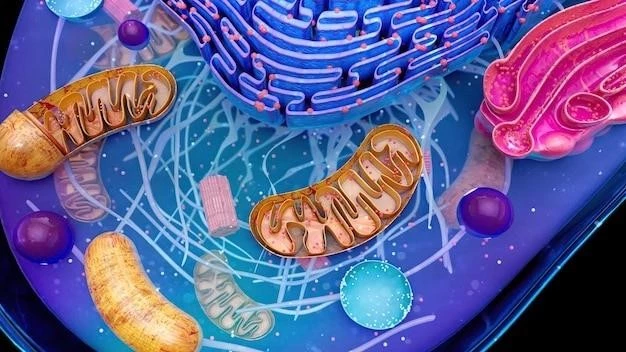Gastritis ー Familial Giant Hypertrophic Disease
Introduction to Familial Giant Hypertrophic Gastritis
Familial Giant Hypertrophic Gastritis is a rare genetic disorder characterized by inflammation and thickening of the stomach lining‚ leading to gastrointestinal issues. This condition is considered a hereditary condition caused by an inherited mutation.
Individuals with this condition often have a family history of gastritis or related gastrointestinal problems. The genetic component plays a significant role in the development of this disease‚ impacting multiple generations within a family.
It is essential to understand the underlying genetic factors contributing to Familial Giant Hypertrophic Gastritis to effectively diagnose‚ treat‚ and manage the condition. This genetic disorder can present various challenges due to its hereditary nature and potential implications for affected individuals and their relatives.
Exploring the genetic aspects of this disease is crucial in providing comprehensive care and support to individuals with Familial Giant Hypertrophic Gastritis. By delving into the genetic underpinnings of this condition‚ healthcare providers can offer tailored treatment options and genetic testing to affected individuals and their families.
Understanding the Genetic Component
The genetic component of Familial Giant Hypertrophic Gastritis is a critical aspect of this rare condition. It is believed to be caused by an inherited mutation that affects the normal function of genes involved in regulating the stomach lining’s health and inflammation responses.

Individuals with a family history of Familial Giant Hypertrophic Gastritis are at higher risk of inheriting the genetic predisposition for this disorder. The presence of specific gene mutations can increase susceptibility to developing symptoms associated with gastritis and gastrointestinal complications.
Genetic testing plays a crucial role in identifying the inherited mutations responsible for Familial Giant Hypertrophic Gastritis. By conducting genetic screenings‚ healthcare providers can diagnose the condition‚ assess the risk of transmission to future generations‚ and offer personalized treatment approaches based on the individual’s genetic makeup.
Understanding the genetic component of this disease is essential for effective management and intervention strategies. By uncovering the genetic basis of Familial Giant Hypertrophic Gastritis‚ healthcare professionals can tailor treatment plans‚ provide genetic counseling‚ and support families in navigating the complexities of this hereditary condition.
Symptoms and Effects on the Digestive System
Individuals with Familial Giant Hypertrophic Gastritis may experience a range of symptoms that affect the digestive system. Common symptoms include abdominal pain‚ bloating‚ nausea‚ vomiting‚ and a feeling of fullness even after eating small amounts of food.
The inflammation and thickening of the stomach lining in this condition can lead to difficulties in digesting food properly. As a result‚ affected individuals may also experience weight loss‚ fatigue‚ and malabsorption of nutrients‚ which can impact overall health and well-being.
Severe cases of Familial Giant Hypertrophic Gastritis can result in complications such as bleeding in the digestive tract‚ anemia‚ and increased risk of developing stomach cancer. These complications highlight the importance of early detection‚ diagnosis‚ and appropriate management of this genetic disorder.
Understanding the symptoms and effects of Familial Giant Hypertrophic Gastritis on the digestive system is crucial for timely intervention and targeted treatment. By recognizing the manifestations of this condition‚ healthcare providers can offer personalized care to improve quality of life and mitigate potential complications associated with gastrointestinal issues.
Diagnosis and Genetic Testing
Diagnosing Familial Giant Hypertrophic Gastritis involves a comprehensive evaluation of the individual’s medical history‚ symptoms‚ and family history of gastrointestinal issues. Healthcare providers may perform various diagnostic tests‚ including endoscopy‚ imaging studies‚ and laboratory tests to assess the condition of the stomach lining and identify any abnormalities.
Genetic testing plays a significant role in confirming the presence of inherited mutations associated with Familial Giant Hypertrophic Gastritis. By analyzing specific genes linked to the disorder‚ healthcare professionals can establish a definitive diagnosis and determine the genetic basis of the condition.
Individuals with a family history of Familial Giant Hypertrophic Gastritis may benefit from genetic counseling to understand the implications of genetic testing results and the risk of passing the mutation to future generations. Genetic testing can provide valuable insights into the hereditary nature of this condition and guide treatment decisions tailored to the individual’s genetic profile.
Early diagnosis through a combination of clinical assessments and genetic testing is crucial for initiating timely interventions and appropriate management strategies for Familial Giant Hypertrophic Gastritis. By integrating genetic testing into the diagnostic process‚ healthcare teams can offer targeted therapies and personalized care to improve outcomes for individuals affected by this rare genetic disorder.
Treatment Options and Management
The treatment of Familial Giant Hypertrophic Gastritis focuses on managing symptoms‚ reducing inflammation‚ and improving the overall health of the digestive system. Treatment options may include medications to alleviate pain‚ control acid production‚ and address gastrointestinal issues such as bloating and nausea.
Dietary modifications can also play a crucial role in managing Familial Giant Hypertrophic Gastritis. Avoiding trigger foods that worsen symptoms‚ consuming smaller‚ more frequent meals‚ and following a diet rich in nutrients can help individuals better tolerate food and improve digestion.
In cases where complications arise‚ such as bleeding in the digestive tract or severe malabsorption‚ surgical interventions may be necessary to address specific issues related to Familial Giant Hypertrophic Gastritis. Surgical procedures aim to alleviate symptoms‚ restore proper digestion‚ and prevent further complications.
Regular monitoring and follow-up appointments with healthcare providers are essential for individuals with Familial Giant Hypertrophic Gastritis to assess treatment effectiveness‚ adjust management strategies as needed‚ and address any new or worsening symptoms promptly. Collaborating with a multidisciplinary team‚ including gastroenterologists‚ genetic counselors‚ and dietitians‚ can help optimize care and improve outcomes for individuals with this genetic disorder.
Potential Complications and Risks
Familial Giant Hypertrophic Gastritis can lead to various complications that pose risks to the affected individual’s health and well-being. One significant risk is the development of stomach cancer‚ particularly in cases where chronic inflammation and changes in the stomach lining persist over time.
Complications such as bleeding in the digestive tract due to ulcers or erosion of the inflamed stomach lining can lead to anemia and require immediate medical attention. Additionally‚ severe malabsorption of nutrients may result in nutritional deficiencies‚ further exacerbating the individual’s overall health condition.
Unmanaged Familial Giant Hypertrophic Gastritis can also increase the risk of developing autoimmune diseases that affect the gastrointestinal system. These conditions may complicate the management of gastritis and require specialized care to address the complex interactions between different autoimmune disorders.
Individuals with Familial Giant Hypertrophic Gastritis should be aware of the potential complications and risks associated with this genetic disorder. Regular monitoring‚ proactive management of symptoms‚ and timely intervention in case of complications are essential to mitigate these risks and improve long-term outcomes for affected individuals.
Conclusion
In conclusion‚ Familial Giant Hypertrophic Gastritis is a rare genetic disorder characterized by inflammation and thickening of the stomach lining‚ impacting the digestive system and overall health of affected individuals. Understanding the genetic component of this condition through genetic testing is crucial for accurate diagnosis and personalized treatment.
The symptoms and effects of Familial Giant Hypertrophic Gastritis on the digestive system can vary in severity‚ requiring a multidisciplinary approach to management that may include medications‚ dietary modifications‚ and‚ in some cases‚ surgical interventions. Early diagnosis and proactive treatment are essential in preventing complications and optimizing outcomes.
By recognizing the potential complications and risks associated with Familial Giant Hypertrophic Gastritis‚ healthcare providers can work collaboratively with patients to develop effective care plans tailored to their individual needs. Regular monitoring‚ genetic counseling‚ and access to specialized healthcare services play a vital role in supporting individuals and families affected by this hereditary condition.
Overall‚ raising awareness about Familial Giant Hypertrophic Gastritis‚ promoting genetic testing for at-risk individuals‚ and fostering a supportive healthcare environment are key steps in improving the quality of life and outcomes for those living with this rare genetic disorder.
